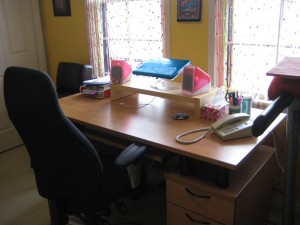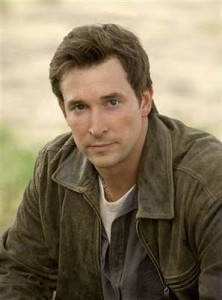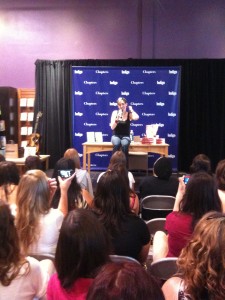 Today is my husband’s birthday. He doesn’t know I’m writing this.
Today is my husband’s birthday. He doesn’t know I’m writing this.
In On Writing, Stephen King talks a lot about his wife, Tabitha. He says that whenever he sees a first novel dedicated to the writer’s spouse, he thinks to himself, “They get it.” Because it takes a special kind of person to put up with a writer as a partner.
I haven’t dedicated a novel to Aaron yet, but that’s only because I haven’t published any of his favourites. When I get the right book out there, it will have his name on the dedication page, count on it. It’ll be one that’s been in the works for years, and that probably wouldn’t have been finished without his cheerleading and support. And, let’s face it, nagging. But I mean that in a good way.
Things Aaron puts up with:
- Vague, daydreamy wife trying to sort out storylines.
Aaron: So, I took the car in for repair…
me: Mm-hmm.
Aaron: And it looks like it needs new brakes…
me: …
Aaron: And also the Warp Reactor is defective. Are you even listening? - Cranky, scary wife when the writing isn’t going well. Or when I’ve had to go too many days without writing.
Aaron: Honey?
red-eyed, messy-haired me: Grrrrrrrrowwwwl.
Aaron: Never mind. - Absent wife when my writing group meets, or when there’s a seminar or course on, or when I have the chance to meet with or present to a group, or interview a subject matter expert, or when there’s a CANSCAIP or WCDR meeting, or when I have the chance to go away and write for a few days. Some weeks, he’s more surprised when I am home for dinner than when I’m not.
- And these are just the things I’m willing to admit to on a blog.
He’s an entrepreneur, so he knows how to work hard and navigate an uncertain future, and he knows that the rewards are (usually) worth the risks. He’s helping me learn that.
He reads my work. He lets me talk through plot problems with him. He offers clever ideas and sometimes gets grumpy when I don’t use them. (It works both ways — he also talks through his development projects with me — but I’m not sure that my answers are as insightful as his.)
We watch movies and television shows together and he lets me dissect them, even though it must be annoying.
We work in the same house, all day, every day, and like it that way. He makes the tea more often than I do. When I hear him hang up the phone and start grumbling or swearing, I wander downstairs to see what’s going on. When I obsess over an email message for six hours, he reads it and tells me to send the darned thing already and get back to writing. We trust each other.
He encourages me. I don’t know that I’ll ever be able to express how important that is or how grateful I am for it. If you write and if you have someone supportive in your life (I hope you do), you’ll understand. That’s the best thing I can wish for any writer, really.
So here’s my suggestion for today: if you’re a writer, and if there’s someone in your life that you’re feeling grateful for, take a few minutes and let them know. The world’s a much nicer place when we’re in it with people we care about.
And me, well, I’ve got a cake to decorate.







